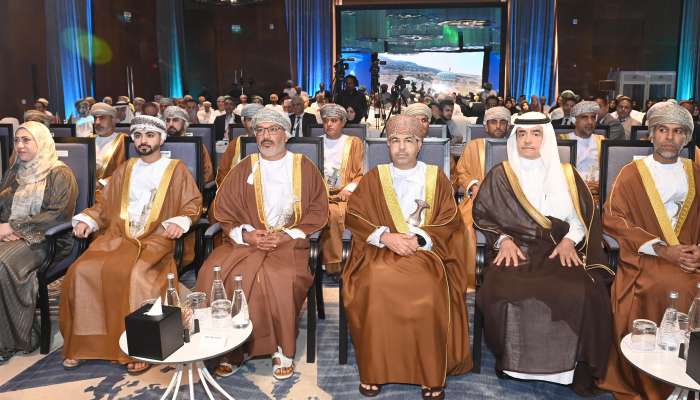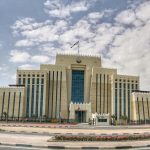The University of Technology and Applied Sciences (UTAS) is hosting the first regional workshop for Asia and the Middle East on the charter of Artificial Intelligence (AI) in the Islamic World in collaboration with the Ministry of Transport, Communications, and Information Technology. This two-day workshop aims to address the growing global interest in AI and the importance of regulating its ethical use. The workshop is part of advanced executive plans, programmes, and strategic initiatives to promote the adoption of AI ethics.
The workshop is organized following the ISESCO’s resolution at the 43rd session in Morocco in December 2022 to draft the “Charter of Ethics for Artificial Intelligence in the Islamic World.” Dr. Khamis Saif Al Jabri, Chairman of Oman Vision 2040 Implementation Follow-up Unit, inaugurated the workshop. Dr. Said Hamad Al Rubai’ee, Vice-Chancellor of UTAS, highlighted the significance of the workshop in advancing the enactment of the AI Charter and reviewing successful experiences in Asia and the Middle East to establish strong ethics and governance of AI.
Dr. Salim M. Al Malik, Director-General of the Islamic World Educational, Scientific and Cultural Organisation (ICESCO), emphasized the importance of exchanging visions among experts from ICESCO countries in the workshop. The workshop, the first activity of the “ISESCO Chair for Artificial Intelligence Ethics,” aims to develop a framework of human values to regulate AI, protect individuals’ rights, and ensure the confidentiality of personal data. The workshop includes discussion panels on regional visions and perspectives on AI applications and drafting the first document for “The Islamic World Charter on Artificial Intelligence.”
The workshop attracted experts and representatives from organizations specializing in information technology and AI, as well as stakeholders in new technology, civil society institutions, and doctoral students from ISESCO member states. The participants will present proposals on AI ethics and governance to contribute to the development of the AI Charter. The initiative seeks to foster collaboration and knowledge exchange among stakeholders in Asia and the Middle East regions to address the ethical challenges and opportunities presented by AI technology.
It is crucial to establish a comprehensive and inclusive framework for the ethical use of AI that respects human rights, privacy, and values. The workshop serves as a platform for dialogue and cooperation among experts to address the ethical implications of AI technology in the Islamic World. The development of the AI Charter in the region will contribute to shaping the future of AI governance and ensuring responsible and ethical AI practices. Collaboration and engagement among stakeholders are essential to promote the adoption of ethical principles in AI development and deployment.
Overall, the regional workshop on the charter of Artificial Intelligence in the Islamic World signifies a significant milestone in promoting ethical principles and governance of AI technology in the region. The initiative reflects a commitment to advancing ethical standards in AI development and fostering collaboration among stakeholders to address the challenges and opportunities presented by AI technology. The outcomes of the workshop are expected to contribute to the development of a comprehensive framework for regulating the ethical use of AI and ensuring the protection of individuals’ rights and privacy.









